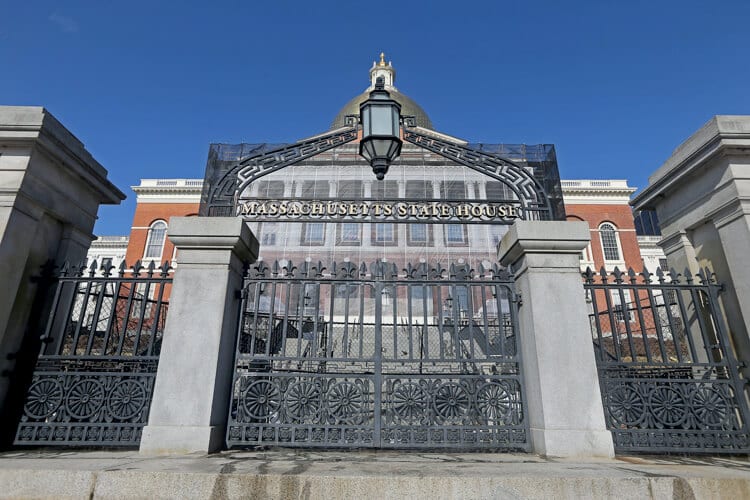Massachusetts Commission Reconsidering Affiliate Marketing Ban

[ad_1]
Arguing that eliminating affiliate marketing would lead to mass-market advertising from black-market sports betting operators and would stunt the ability to share responsible gaming information, a diverse group of legal sports betting stakeholders on Monday urged the Massachusetts Gaming Commission to change a regulation ahead of its projected March 10 digital launch.
The MGC appears to be pointing toward amending the rule, at least to allow for Cost Per Action (CPA) deals between affiliates and operators. Affiliate marketers work under either CPA deals, through which they are paid per customer acquired through an affiliate partner, or revenue share agreements.
Commissioners asked their legal team to develop options to amend the regulation, which currently bans partnerships between operators and affiliates, and the commission decided to juggle its schedule to address the regulation on Wednesday and/or Thursday.
Only two legal U.S. jurisdictions — Connecticut and Illinois — currently have restrictions on affiliate partnerships, and none ban them outright. Connecticut regulations prohibit partnerships that include the CPA model, and Illinois regulations prohibit deals based on revenue sharing.
Better Collective, the owner of Sports Handle, US Bets, and other sports betting media properties in the U.S., banded together with competitors Catena and CDG (Gambling.com) to lobby for a change to Regulation 256. The main discussion points were how affiliates provide a service by educating and informing consumers, that they only market to those already interested in participating in wagering, and that banning affiliate partnerships would ultimately give rise to the black market.
Affiliates help, don’t hurt
Seven digital operators are poised to launch in Massachusetts on March 10, meaning that there is a tight timeline for a decision, as operators and affiliates must solidify deals and complete other administrative tasks before the partnerships are active. The three media companies that participated all have deals in place with many major operators in other jurisdictions.
BetMGM, DraftKings, and FanDuel were among the operators who participated in the roundtable and also advocated for the partnerships.
Operators are already taking action based on the regulation as written. Caesars Sportsbook has sent a letter to affiliates saying that it will not work with affiliates in the market given the current ban.

Executives from Better Collective, Catena, and CDG collectively said that CPA deals account for about 90% of their deals, in part because those types of deals are “easier to track,” said Max Bischel, vice president of U.S. business at Gambling.com Group. Bischel also told the commission that the media companies “are not mainstream media, so we’re not [reaching] an audience that is underage” and that the three media companies account for 30% of betting customers sent to legal sportsbooks.
Katie McCord, legal counsel for Better Collective, explained to commissioners that the media companies participate in “pull” advertising, meaning they cater to consumers already interested in a product, vs. “push” advertising, which is more broad and is introducing consumers to products. She also shared how the “legal industry will lose” without affiliate deals and referred to the current Massachusetts rules as “commercially unviable.”
Commissioners discussed the possibility of altering the rule to allow CPA advertising but potentially continue to prohibit revenue-share models. While the operators at Monday’s meetings would be amenable to such a compromise, it seems clear that smaller companies, like Betr — which has been approved for a standalone mobile license in Massachusetts — could be at a disadvantage in that scenario.
“Revenue share might make sense for smaller companies or new entrants that may not have multi-million dollar budgets and couldn’t compete,” Bischel said.
Better Collective’s Karl Pugh agreed, saying that for those on the “lower end of the spectrum on the marketing side, revenue share is critical.”

A misunderstanding at hand?
Similar to the proposed federal ban on all sports betting advertising, the Massachusetts roundtable brought together a diverse group of stakeholders, including responsible gambling consultant Brianne Doura-Schawohl, who started her career in Massachusetts. Doura-Schawohl also pointed to the importance of “pull” advertising as only being directed to “verified consumers who want that information” and said that the real issues the commission should be concerned with center around social media advertising directed to the broader market, billboards, or advertising in more mainstream media.
While she said that she doesn’t believe that any state has “gotten it right” yet, she did point to Ohio as a leader in responsible gambling. She said that Massachusetts has many best practices already in its rules, but it may have gone too far with this one.
“I do think this may have been one of those misunderstandings about what is really going to achieve success in protecting the market,” she told commissioners.
The commissioners peppered Doura-Schawohl and others with questions and showed a clear interest in reassessing the rule.
Commissioner Jordan Maynard said the commission “strives to strike a balance” in all of its tasks, while Commissioner Eileen O’Brien suggested that the commission “might have missed the mark.”
[ad_2]
Source link

